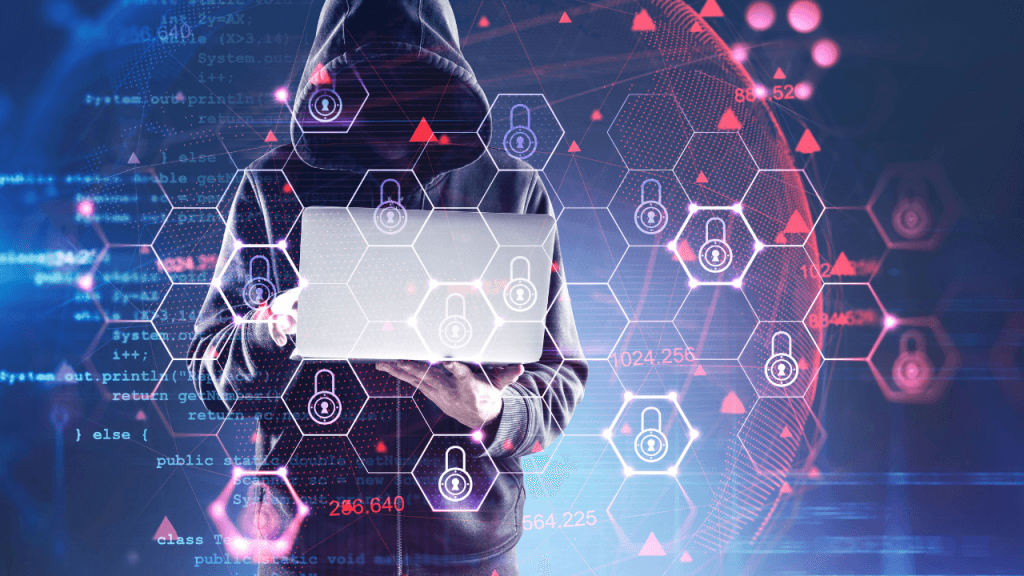In today’s digital world, your online accounts—whether email, social media, or banking—are gateways to sensitive personal and professional data. Unfortunately, cybercriminals are constantly devising ways to breach these accounts, putting your digital privacy at risk. Learning how to protect your accounts from unauthorized access is essential to safeguard your information and maintain trust in relationships and business dealings. This article explores the risks of unauthorized access, legal implications, and practical cybersecurity solutions to keep your accounts secure. At Hacker01, we specialize in ethical hacking and data protection to help you stay one step ahead of hackers.

The Growing Threat of Unauthorized Account Access
Unauthorized access occurs when hackers gain entry to your accounts through methods like phishing, brute force attacks, or stolen credentials. According to a Kaspersky report, account breaches rose by 25% in 2024, with email and social media platforms being prime targets. These breaches can lead to identity theft, financial loss, or exposed personal communications, which can strain relationships. Understanding how to protect your accounts from unauthorized access starts with recognizing the risks and vulnerabilities in your digital habits.
Impact on Relationships
In relationships, unauthorized access to accounts can erode trust. For example, a hacked social media account might send misleading messages to a partner, causing misunderstandings. Our guide on protecting digital privacy in relationships emphasizes transparent communication to maintain trust while securing accounts.
Legal Consequences of Unauthorized Access
Unauthorized access to accounts is illegal under laws like the U.S. Computer Fraud and Abuse Act (CFAA), which imposes fines and imprisonment for hacking activities. A U.S. Department of Justice resource outlines these penalties, noting that even attempting to access an account without permission can lead to legal action. Beyond legal risks, hacking violates digital privacy, potentially damaging personal and professional reputations. Instead of resorting to unethical methods, individuals should seek cybersecurity solutions, such as those offered by Hacker01’s ethical hacking services.
Ethical Alternatives in Relationships
In romantic or professional relationships, suspicions about account activity may tempt some to hack accounts. However, this breaches trust and legality. Ethical alternatives, like discussing digital boundaries or sharing account access transparently, are more effective. Our relationship cybersecurity guide provides actionable advice for fostering trust without invasive tactics.
Common Vulnerabilities Leading to Unauthorized Access
Hackers exploit weaknesses in account security to gain access. Below are key vulnerabilities and how to address them to protect your accounts from unauthorized access.
Weak Passwords and Lack of 2FA
Weak or reused passwords are a leading cause of account breaches. Additionally, accounts without two-factor authentication (2FA) are more vulnerable. 2FA requires a secondary verification step, like a code sent to your phone, making unauthorized access harder. Platforms like Gmail and Facebook offer 2FA, which you should enable immediately.
Phishing and Social Engineering
Phishing emails or fake login pages trick users into revealing credentials. Hackers may also use social engineering to manipulate users into sharing sensitive information. Staying vigilant and verifying email senders can prevent these attacks. Learn more about phishing prevention in our ethical cybersecurity practices.
Practical Tips to Protect Your Accounts
Implementing robust account security measures can significantly reduce the risk of unauthorized access. Here are actionable steps to strengthen your defenses.
1. Use Strong, Unique Passwords
Create passwords with at least 12 characters, including letters, numbers, and symbols. Use a password manager to generate and store unique passwords for each account, reducing the risk of credential reuse.
2. Enable Two-Factor Authentication (2FA)
2FA is one of the most effective ways to secure accounts. Enable it on all platforms that support it, including email, social media, and banking apps, to add an extra layer of data protection.
3. Monitor Account Activity
Regularly check your account’s login history for unfamiliar devices or locations. Most platforms provide security logs to track access. If you spot suspicious activity, change your password and log out unauthorized devices immediately.
4. Be Cautious of Phishing Attempts
Avoid clicking links or downloading attachments from unknown emails. Verify the sender’s identity and use antivirus software to detect phishing attempts. Trusted tools like Malwarebytes can enhance your security.
5. Use Encrypted Services
Opt for platforms with end-to-end encryption, such as ProtonMail for email or Signal for messaging, to ensure your communications remain private. Encryption is a cornerstone of digital privacy.
Ethical Hacking: A Proactive Solution
Instead of waiting for a breach, proactive ethical hacking can identify vulnerabilities before hackers exploit them. Ethical hackers simulate attacks to test account security, providing actionable insights to strengthen defenses. According to a CSO Online article, ethical hacking is a critical tool for businesses and individuals aiming to protect sensitive data.“
Why Choose Hacker01’s Services?

At Hacker01, our certified ethical hackers conduct penetration testing and security audits to secure your accounts. Whether you’re protecting personal or corporate data, our tailored cybersecurity solutions address your needs. Explore our approach in our why choose Hacker01 section.
The Role of Technology in Account Security
Advanced technologies, such as artificial intelligence (AI) and machine learning, are transforming account security. AI-powered systems detect unusual login patterns and flag phishing attempts in real time. Email and social media platforms increasingly integrate these technologies to enhance user protection. Additionally, ethical hacking tools allow professionals to stay ahead of cybercriminals, ensuring robust data protection.
Future-Proofing Your Accounts
To stay secure, adopt emerging technologies like biometric authentication or zero-trust security models. These innovations minimize the risk of unauthorized access, especially for high-value accounts. Hacker01’s cybersecurity consulting services can guide you in implementing these solutions.
Conclusion
Protecting your accounts from unauthorized access is critical for maintaining digital privacy and trust in relationships and business. By using strong passwords, enabling 2FA, and leveraging ethical hacking, you can secure your accounts against cyber threats. Professional cybersecurity solutions offer peace of mind, ensuring your data remains safe. Visit Hacker01 to explore our services and take control of your account security today.